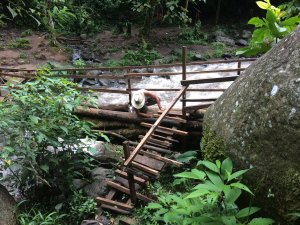Presented By: Science, Technology and Society
STS Speaker. Science-in-Vivo: Experimental Methods for the 'Bananapocalypse
Alyssa Paredes, U-M Anthropology

Fusarium Wilt Tropical Race Four is a deadly soil-borne fungal disease that has stumped the global banana industry. While pesticides are systematically employed to control the spread of disease on plantations, the failures to develop a chemical control for Fusarium Wilt has exposed the paradigm limits of conventional agricultural science. In this talk, I introduce the notion of ‘science-in-vivo’, a method of experimentation that has emerged in the context of Philippine banana plantations ravaged by the ‘incurable’ fungal disease. Literally ‘science within the living body’, the method combines secular and non-secular thought, and gathers human, nonhuman, and extrahuman forces in ways that break down some of the hegemonic antagonisms that define plantation life. I argue that renewed scientific sensibility offers a way to expand local strategies for transformative activist praxis in a sector where political horizons have only narrowed. The method was inspired, originally, by a series of God-given dreams about microbes in the forests of southern Mindanao.
Bio: Alyssa Paredes is LSA Collegiate Fellow in the Department of Anthropology at the University of Michigan, Ann Arbor, where she will be Assistant Professor in 2022. Her research concerns the human, environmental, and metabolic infrastructures of transnational trade between the Philippines and Japan. Her first book project, preliminarily titled Bananapocalypse: Plantation Commodities and the Conceit of Ecological Externality, identifies the conventions of crop science, agrochemical regulation, market segmentation techniques, and food standards as arenas where actors contend over the commodity chain’s production calculus. Her work appears in Ethnos: Journal of Anthropology, the Journal of Political Ecology, the Journal of Material Culture, as well as in edited collections such as Feral Atlas: The More-than-Human Anthropocene (Stanford, 2020), The Promise of Multispecies Justice (Duke, forthcoming 2022), and the Japanese-language volume 甘いバナナの苦い現実 [The Bitter Reality of Sweet Bananas] (Commons, 2020). She holds a PhD with distinction from Yale University.
Bio: Alyssa Paredes is LSA Collegiate Fellow in the Department of Anthropology at the University of Michigan, Ann Arbor, where she will be Assistant Professor in 2022. Her research concerns the human, environmental, and metabolic infrastructures of transnational trade between the Philippines and Japan. Her first book project, preliminarily titled Bananapocalypse: Plantation Commodities and the Conceit of Ecological Externality, identifies the conventions of crop science, agrochemical regulation, market segmentation techniques, and food standards as arenas where actors contend over the commodity chain’s production calculus. Her work appears in Ethnos: Journal of Anthropology, the Journal of Political Ecology, the Journal of Material Culture, as well as in edited collections such as Feral Atlas: The More-than-Human Anthropocene (Stanford, 2020), The Promise of Multispecies Justice (Duke, forthcoming 2022), and the Japanese-language volume 甘いバナナの苦い現実 [The Bitter Reality of Sweet Bananas] (Commons, 2020). She holds a PhD with distinction from Yale University.